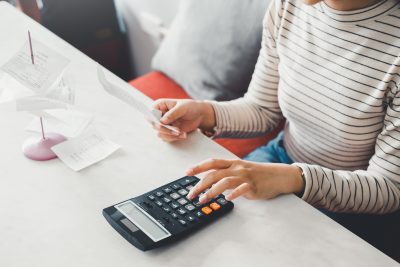Quick Look
- For the high-interest debt you have decided to pay off first, do one of the following:
- Increase your already set up minimum payment up to the total amount you can afford.
- Set up a second payment for the difference between the minimum due and the predetermined amount you can afford.
- Set a reminder to make the extra payment at a set time (or “times” if you want to make two extra payments) each month based on what you can afford that month.
Details

Consistently making an extra payment can potentially take months or years off your debt payment timeline.
Regardless of your debt pay off strategy, it’s your “extra payment” that is going to be the difference maker in reducing your debt burden. Without making an extra payment – and ideally the true maximum you can afford – you’re simply not going to make progress on paying down your debt. This is particularly true if you have credit card debt since the minimum payment is usually only a few percentage points of your total debt. Only paying the minimum payment on credit card debt can result in years or even more than a decade before the full amount is paid off.
Therefore, it is so important to find a method for making this extra payment that is consistent and that works for you.
Methods to Applying Your “Extra” Debt Payoff Amount
There are benefits and drawbacks to each method. Use the chart below to you make your decision. But remember: What matters is not the method you choose but the consistency with which you follow-through. Following any one of the options below – every month – will allow you to make progress.
| Method | Benefits | Drawbacks | Best For Those With |
| Make an Increase to Minimum |
|
|
|
| Schedule a Second Automatic Payment |
|
|
|
| Set a Reminder |
|
|
|
Reminders from Your Bank
If you choose to set a reminder, you can obviously use any reminder system that works for you including a reminder on your phone, a task management system, or something else. But take note: Most banks have features that allow you to set alerts and get reminded via text message or email. Not only can you set reminders based on when your bill is due, but when you hit certain spending limits and much more. Make sure to investigate your options!
Take Action
Set up your “extra payment” based on the method of your choice. Now you can rest easy that you have a clear plan for debt payoff that works for you.